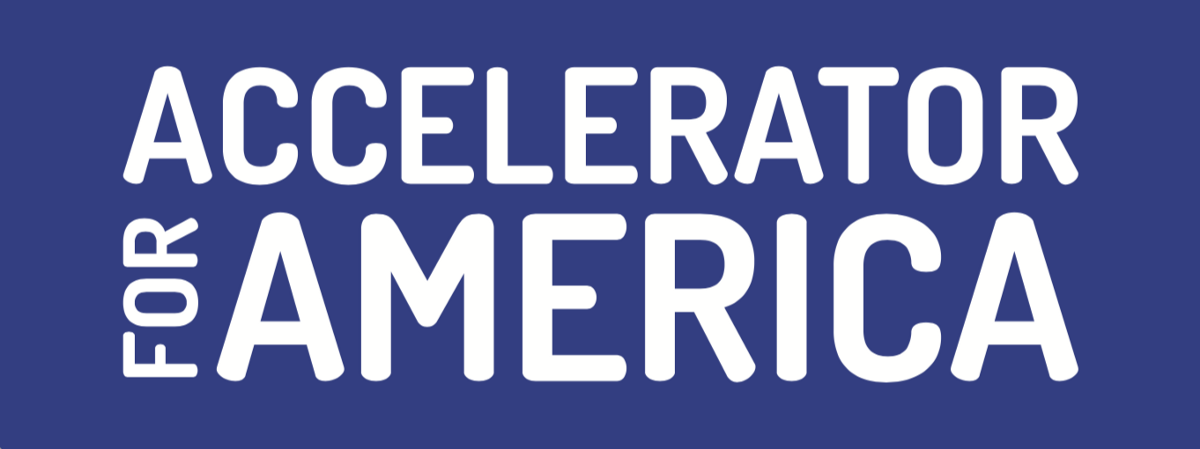Release: Realizing the Transformative Potential of Opportunity Zone Business Investing
Opportunity Zone Rules Hinder Business Investing While Real Estate Investing Rises
More than a year since Opportunity Zone were formally designated, Opportunity Fund capital has been flowing faster into real estate, while investment in businesses trickles in.
Over a year ago Opportunity Zones (OZ) were created to move billions of dollars into low-income communities, yet business investment in these areas is trickling in - while real estate investment continues to surge. In a new report released today, researchers from the Nowak Metro Finance Lab at Drexel University, Ben Franklin Technology Partners and Accelerator for America, identify which OZ rules are inhibiting stakeholder interests in business investments, while identifying updates that can make OZ benefits for business investing clearer and easier to leverage.
Realizing the Transformative Potential of Opportunity Zone Business Investing: A Guide for Practitioners, is a report highlighting the gap emerging in OZ investment between high-volume real estate deals and less common operating business investment. The report offers solutions to help the existing legislation achieve its intended goals of creating quality local jobs, greater community wealth and stronger local economies.
The report is co-authored by Bruce Katz, JD, distinguished fellow in the Lindy Institute of Urban Innovation and director of the Nowak Metro Finance Lab, and Evan Weiss, senior advisor for Public Finance to Governor Phil Murphy of New Jersey. The report proposes changes and provides clarification to the legislation, as well as support for intermediary activities that will unlock investment in both startup and longtime OZ businesses across a variety of sectors.
“This report comes at a key moment, while regulatory changes are being considered and it is our hope that it helps to elucidate both the problems and potential of Opportunity Zones,” said Katz. “The report is a call to action for economic development practitioners across the country to work toward solutions; if harnessed thoughtfully, OZ business investing can help build lasting wealth in economically-distressed communities.”
“Given the critical role businesses play in the economic growth of underserved areas, the potential of the Opportunity Zones incentive for businesses’ investment is too great to ignore,” said Weiss. “The current inscrutable Opportunity Zone rules that can make taking advantage of the incentive seem like more trouble than it’s worth must be changed to fully leverage the tremendous potential of this legislation.”
The report calls for more guardrails, strong reporting requirements and ways to ensure that all designated Opportunity Zones genuinely meet the intent of the law so that the legislation can live up to its potential. Highlights of some of the key regulatory adjustments proposed in the report include:
Clarify the 40 percent intangible property test to ensure investors feel confident investing in high potential IP-intensive businesses like tech and biosciences. Following the multiple methodology tests for the 50 percent gross income requirement developed for the April 2019 regulations would offer a strong solution here.
Drop the “asset by asset” substantial improvement requirement and allow business-level investments to count towards the substantial improvement test. The goal is to ensure investment in businesses, not just their tangible assets. An investment that allows a business to hire should be counted similarly to investments in new equipment.
Provide greater clarity for the “facts and circumstances” methodology for the 50 percent gross income test to help businesses, like life sciences, which depend on highly specialized contract research and manufacturing.
Offer greater flexibility for the 31-month working capital safe harbor and new rounds of investment. For sectors like life sciences and advanced manufacturing, adding additional time to the 31-month period would encourage investment in those businesses. Allowing for infusions of additional growth capital without restarting the ten-year clock could also better suit the lifecycles of IP-intensive businesses.
The analysis was conducted through the collaboration of Ben Franklin Partners of Southeastern Pennsylvania, Accelerator for America, and Drexel University’s Nowak Metro Finance Lab with support from United States Economic Development Administration and Rockefeller Foundation grants.
The full report can be downloaded, here.
Drexel University Nowak Metro Finance Lab
The Nowak Metro Finance Lab was formed by Drexel University in July 2018. It is focused on helping cities find new ways to “finance the inclusive city” by making sustained investments in innovation, infrastructure, affordable housing, quality places, and the schooling and skilling of children and young adults. It is situated within the Drexel University’s Lindy Institute of Urban Innovation.
Ben Franklin Technology Partners of Southeastern PA
Ben Franklin Technology Partners combines the best practices of early stage investing with a higher purpose – to lead the region’s technology community to new heights, creating jobs and transforming lives. For over 35 years, Ben has been the leading seed stage capital provider for the region’s technology sectors, investing over $200 million in more than 2,000 regional technology companies, many of which have gone on to become industry leaders. Ben Franklin has also launched university/industry partnerships that accelerate scientific discoveries to commercialization, and has seeded regional initiatives that strengthen our entrepreneurial community.
Accelerator for America
Accelerator for America is a non-profit organization created by Los Angeles Mayor Eric Garcetti in November 2017. It seeks to provide strategic support to the best local initiatives to strengthen people’s economic security, specifically those initiatives that connect people with existing jobs, create new opportunities and foster infrastructure development.
####
Media interested in speaking to Katz can contact Emily Storz at els332@drexel.edu or 215-895-2705.
